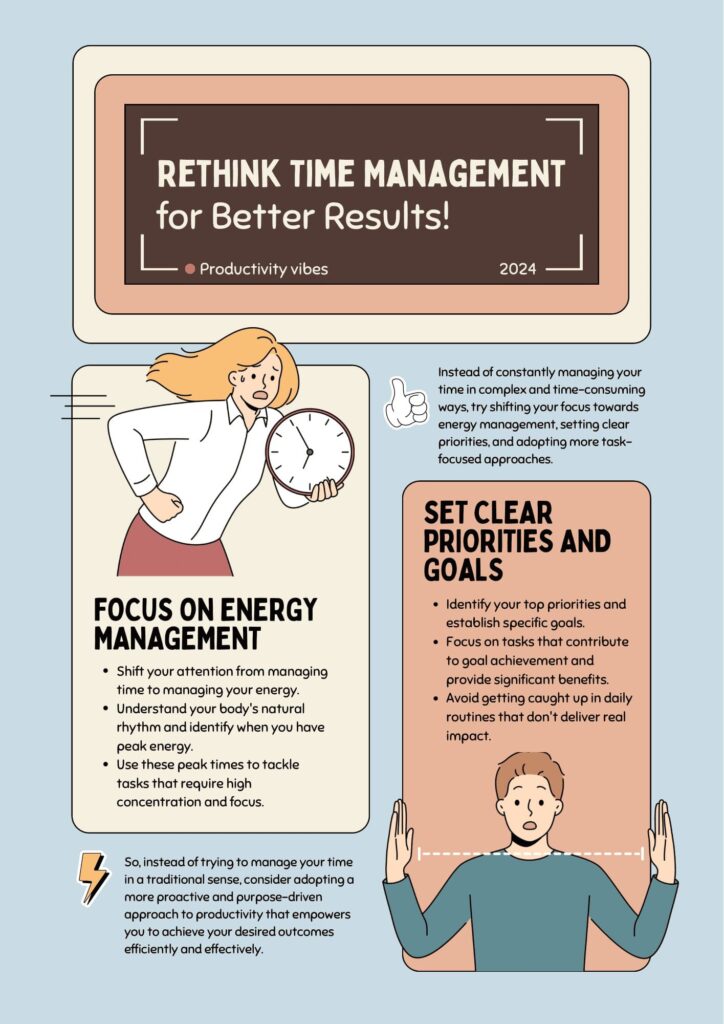Mastering Time Management: Your Key to Success and Productivity

Effective time management has never been more important. Work, home, college or school – people on every rung of the society’s hierarchy are loaded with responsibilities. But while some get stressed over the deadlines and are just about able to pull through, others look as if they have everything already done. Why? Because they know how to manage their time.
This blog will present the gains of effective time management, the practical ways in which a day may be made effective, and the ways in which dependent activities can be formed. As you may seek for better grades, career development, or even self-satisfaction, it will be of great importance to learn how to control your time.
What is So Important in Time Management?
1. More Productive and Efficient Output
Time management corrals the completion of tasks but it efficient in the completion of that tasks. By hierarchy of tasks and performing what needs to be done when it matters most, you are able to not only complete the tasks within planned time, you also do it in a much better way. When you schedule your activities on a day, you are able to direct your energy on the activities that are the most constructive and likely to yield results.
2. Control Stress and Worry
Everything comes with its ups and downs, but faced with a very long uncompleted assigned task one is likely to become flat out defeated. Stress is created when there is inefficient time management, which procrastinates on the necessary work and leaves lots of incomplete tasks in its wake. There is, however, a silver lining. Instead of only one deadline for the final product, one can work with intermediate deadlines. This approach allows you to plan better. More importantly, it allows you to tackle every single task without the pressure of finishing it quickly, which diminishes stress and anxiety.
3. Enhanced Concentration and Decision-Making
By managing your time efficiently, you remain on what is necessary ignoring what is not relevant to your objectives. In an organized way, decisions can be made not only more quickly but also more authoritatively with the assurance that there is time for attention on the urgent matters that have been planned for.
4. Enhanced Achievement and Accomplishment
A lot of good-performing individuals attribute their success to strong organizational abilities. Managing your time efficiently gives you the ability to set goals and reach them with ease, thereby making your wishes come true. Once you create an orderly plan, you build a force that propels you towards the achievable goals, hence making success a feasible rather than an illusory dream.
Also Read: Top 5 Ways to Transform Your Life for the Better
Proven Strategies for Mastering Time Management
The essence of time management is to make conscious choices that prioritize tasks based on importance and deadlines. Here’s how you can take control of your time effectively.
1. Start with SMART Goals
Your time management journey begins with defining what you want to achieve. A popular framework is SMART goals, where goals are Specific, Measurable, Achievable, Relevant, and Time-bound. For example, instead of saying “I want to exercise more,” a SMART goal would be “I will work out for 30 minutes every weekday at 6 a.m.” Setting SMART goals aligns your tasks with your objectives, helping you stay focused and motivated.
2. Prioritize Using the Eisenhower Matrix
The Eisenhower Matrix, created by former U.S. President Dwight Eisenhower, divides tasks into four quadrants based on urgency and importance. It’s a powerful tool for identifying where to focus your energy:
- Quadrant 1: Urgent and Important – tasks that need immediate attention (e.g., deadlines, emergencies).
- Quadrant 2: Not Urgent but Important – tasks that contribute to long-term success (e.g., strategic planning, skill development).
- Quadrant 3: Urgent but Not Important – tasks that can be delegated (e.g., interruptions, routine emails).
- Quadrant 4: Not Urgent and Not Important – distractions to be minimized (e.g., excessive social media, unproductive meetings).
By spending more time in Quadrant 2, you’ll avoid last-minute rushes and focus on meaningful activities that drive success.
3. Utilize Time-Blocking and Batching Techniques
Time-blocking, a technique popularized by Elon Musk, involves scheduling specific “blocks” of time for particular tasks. This technique helps you focus on one task at a time, reducing context-switching and improving productivity. Similarly, batching similar tasks—like responding to emails or making phone calls in a single time slot—can enhance efficiency by maintaining a flow state.
4. Embrace the 2-Minute Rule for Small Tasks
The 2-minute rule, popularized by David Allen’s productivity book Getting Things Done, states that if a task can be completed in two minutes or less, do it immediately. This prevents minor tasks from piling up, freeing your mind for bigger projects.
5. Plan and Reflect Daily
Setting aside time each day for planning and reflection is essential. Mornings are perfect for prioritizing tasks, and evenings for evaluating your accomplishments and noting any lessons learned. Regular reflection helps you stay in tune with your goals, adjust your strategies, and acknowledge your progress, keeping you motivated.

Creating a Perfect Time Management System
It is quite common, and perhaps even habitual to meet, successful people who explain their success, especially that of achieving rather tight targets, to some routines that unswervingly work towards proper time management. Some of the most crystallized habits over the years include:
1. The Early Bird Catches the Worm – The first person to wake up tends to have the highest percentage of winning an opportunity, which is the norm, while most people are still resting, individuals like the CEO of Apple, Timothy Cook and the media queen Oprah Winfrey, tend to get out of bed quite early in the mornings. Towards the mornings, there is very little that can make you abort the focus that you are able to withdraw from everyday demands. With the timing of the morning also comes the advantage of who gets to do many core things in travel before other people have even begun doing their travel activities at work.
2. Intermittent Break and Downtime- I don’t care how much you believe in yourself etc. most people work without breaks is inefficient. It also depends on human psychology. In several creative activities, such as outdoor games or sports, the Pomodoro Method is successfully practised. A person works for 25 minutes and then rests for 5 minutes, supposedly to improve concentration and avoid overworking oneself. Downtime is also beneficial for creative processes because it allows the brain to work without the conscious mind interfering.
3. Learning to say No – Time management takes effort in one’s part, especially bearing the word ‘no’ with grace. Manage your tasks and commitments in a proper manner. There is also a time, though, and this is different in tone and approach, when one has to say no, and mean it if only to focus on more rewarding objectives. Remember this: every undersized ‘yes’ allows something less important to take place and thus occasions a bigger ‘no’ – to that which is of greater value.
4. Avoid Distractions – Modern edition distraction for the majority of people consists of such items as an inbox and social media notification. People who manage to do things in a productive way use methods such as cutting down the time spent on devices, designating periods without phones, and blocking particular websites. For example, instead of checking pm every 10 minutes every hour, set aside two 30-am periods where you will respond to all messages.

Harvesting the Long-Term Advantages of am Effective Time Management
The scope of time management benefits is far-reaching beyond just day to day achievements. Being able to control one’s time can enhance all dimensions of life, promote self-satisfaction, and provide a better platform for success in the future.
1. Increased Work-Life Balance
Adopting effective time management practices minimizes the pressure engendered by work and personal life. Where there are schedules for different activities with priorities, time is usually assigned for hobbies, and family, as well as rest, which improves the work-life balance.
2. Better Health and Quality of Life
Difficult work burden can lead to undesirable behavioral and bodily results. Time management curtails this stress because it allows one to make a working schedule that accommodates time for exercise, rest, and even mental balancing which are needed for well-being in the future.
3. Increased Self-Control
Every time you accept a timetable or reach a task by a certain date, you enhance your control over yourself. This regard for one’s time may encourage discipline in other life aspects, such as developing healthy habits or refraining from unnecessary expenditures.
4. Steps Forward Towards Self Development
In order to make personal changes, planning time is quite important. It is possible to plan one’s activities in such a way that at least every day a little time is spent on something other than work be it reading a book, or learning a new craft, or maintaining social contacts -such time management practices help in making achievements on personal objectives as well as work objectives leaving individuals satisfied and productive.
Last Words

Time is the most priceless commodity one can own. When time has elapsed, there is no way to recover that time back. Time management skills enable one to optimise the productivity of every single day of their lives in achieving the targets that one has set out for themselves. Specific goals set, correct prioritization done, and useful practices developed, there is always harmony in work and life. Cautionary note: every time spent is an investment in realising a certain vision of the future.
Look forward to the process of mastering the skill of managing one’s own time as this is the secret to a highly productive and enjoyable life with minimal stress.

